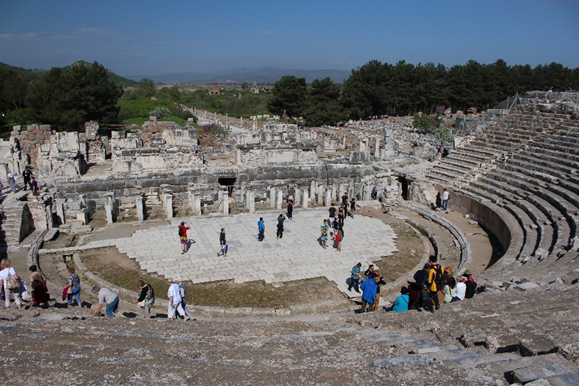![]()
This week I got into a, shall we say, ‘intense’
discussion on Facebook. Someone posted
about how ‘those parasitical churches ought to pay taxes just like everyone
else in the world,’ and I mentioned that churches have a large economic benefit
for the community. Of course, someone
challenged that, and I dug for some research and statistics to back up that
statement. Which I found, by the way.
There were a lot of comments that started like “The
church is” and described all the evils they had heard of. Comments like “The Church destroyed
indigenous people and their culture”. That
is true on the face of it, but Lutherans, Mennonites, Orthodox (Ukrainian and
Russian), Baptists and other groups had nothing to do with residential schools.
Should they be blamed for what the Anglicans, Catholics, Uniteds and
Presbyterians did? And other comments
developed, I’m sure you can predict them, “All Christians are anti-abortionist,”
or “science hates religion” despite the United Church having Nobel prize
winning physicists in their congregations. Or my personal favorite “No
progressive Christians spoke out against ‘fascist white brethren’s rants” to
which I replied, “where were you when I was preaching ad nauseum against a
certain red-haired president who didn’t even rule my country?”
And of course, we have the nauseating example this
week of a young woman calling out her pastor for having sexually abused her
when she was underage, the pastor tearfully confessing and the congregation rushing
to forgive him and forgetting her. And
many folks in the states are saying that they are tired of prayers when it
comes to school gun violence and racially motivated shootings. “When do we do something?” they rightly ask.
Churches get blamed for witch hunts, crusades and
patriarchy. Case closed, churches are
bad and the sooner we get rid of them, the better. History proves it.
Or at least one very narrow way of looking at history.
It ignores the history of ordinary people of faith whose daily living is shaped
and sustained by their commitment to God. Ordinary people like Lydia who are
transformed by a casual encounter by the river one day.
Do you remember Lydia?
Not the tattooed lady of Groucho Marx’s affections, but quiet Lydia in
the town of Philippi? Not many people do.
There were no crusades in her name, and no cities named after her, no
priests that ran inquisitions on her behalf.
But she points to a different kind of Christian history worthy of being
followed.
She was a person of status, an independent
businesswoman that was in the unusual position of being the leader of a
household. She was a seeker of meaning
to life in general, and was looking for a God worth believing in. She had gravitated to meeting on the Jewish
Sabbath with other women, and the mere fact that they met outside the city
meant that there were not enough Jewish men in the town to have a synagogue of
their own. It also meant that they were
not comfortable discussing faith inside the city walls. She was used to leading a household and
dealing in valuable commodities like the rare dye to make royal purple, and she
was a leader in a time and a culture that did not permit women to own things,
and treated women as things to be owned.
Enter Paul. He thought he was looking for a man from
Macedonia. He thought he was looking for
a synagogue. He thought he was looking
for his fellow countrymen who were steeped in scripture and who already knew
God through the covenantal love shown Abraham and Sarah, Jacob and Leah and
Rebecca, Moses and Miriam and Aaron, David, Ruth and Esther. Instead, he found a seeker who was a gentile
and a woman. She also was the first
European to be converted to the new message of love and hope.
What a hope it was! From being a seeker in the wilderness, she
became a baptized member of a community.
From discussions outside the city, she became a hostess demonstrating
unheard of generosity. From being an
entrepreneur, she became a leader of the church of Philippi. From being an ordinary, non-descript woman,
she became a saint!
Paul loved these people and took
inspiration from them to continue his mission.
In his letter to the Philippians, he wrote, “As God is my witness, how I
long for you with the compassion of Jesus.”
He also thanked them for their generosity, seen in Lydia’s offer of
accommodation. Their generosity continued as he also wrote, “You Philippians
know that in the early days of sharing the Good News, when I left Macedonia, no
churched shared with me… except you alone.
Even when I was in Thessalonica, you sent me help for my needs more than
once… I have been paid in full and have more than enough.”
The city of Philippi is now a
world heritage site after earthquakes and wars.
There is a lovely little church for baptisms nearby that is named after
Lydia, the first person in Europe to be baptized into the Christian Faith. At times like these where so many awful
things are happening around the world and close to home, let us remember humble
Lydia’s story. Her love and hospitality
laid the groundwork for a faith that would develop hospitals for the sick,
hospices for the dying, schools for children whose parents could not afford
private tutors, and compassion for those who were seen as unimportant. Her faith survived plagues and wars, famines
and natural disasters. Her faith spoke
to her neighbors, encouraging them and inspiring them, and transformed her
whole household into a family of love.
When we remember the root
principles of Christianity, love, hospitality, compassion and service, we
strike a chord in the people we talk to.
The people on Facebook are shocked to hear that we care about the
well-being of our community, and that we are compassionate to the powerless and
the abandoned. When we are united in
love, we can make a difference that withstands the challenges of history and
the tragedies that life can throw at us.
In life, in history, in life beyond history, we are not alone. Thanks be to God!





